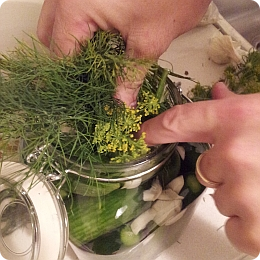 Why Do We Need Fermented Foods?
Why Do We Need Fermented Foods?
Probiotics are not a new medical discovery, humanity has been eating fermented foods, the best source of probiotics, since the beginning of history. The modern era has rediscovered the probiotics, hence the extra attention given by the medical world, the health industry, and the media.
Probiotics are tiny life forms, such as bacteria, and yeast, that live in symbiosis with humans, and other mammals. The probiotics live inside our gut, and help us maintain in shape in a few ways. They fight other bacteria, by releasing substances that are toxic to other bacteria, named bacteriocins, to kill the bad bacteria. They also help us boost our immunity, the mechanism is not fully known. There are a lot of other benefits associated with probiotics, they are documented scientifically, but the mechanisms are not yet fully understood.
Fermented Foods Source of Probiotics
Controlled Fermentation for Probiotics
All fermented foods contain probiotics in large quantities, and as a general rule, it is safe to get large quantities of probiotics, and in many cases is recommended to get more probiotics, rather than less. We have to make a distinction between raw fermented foods and processed fermented foods. The only fermented foods that contain probiotics are the raw ones. Once heated over around 113o F, (around 45o C), the bacterial cultures start to die. There are some strains that are thermo resistant, but those aren’t present in our typical fermented foods diet, and the temperature of the thermotolerant bacteria is still lower than the cooking temperature, around 160o F, (70o C). That means that cooking fermented foods destroys the bacterial cultures present in foods.
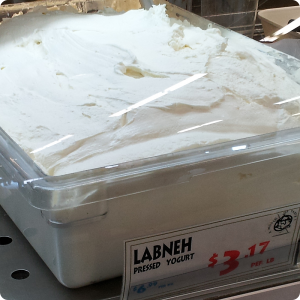 It is probably not necessary to mention that not all bacteria are beneficial for our health, everybody knows that. Therefore, the fermentation process needs to be controlled in some way, on order to restrict the bacterial growth to only beneficial bacteria, and inhibit wild bacteria that will spoil the food, and will make us sick. The process can be controlled in a few ways:
It is probably not necessary to mention that not all bacteria are beneficial for our health, everybody knows that. Therefore, the fermentation process needs to be controlled in some way, on order to restrict the bacterial growth to only beneficial bacteria, and inhibit wild bacteria that will spoil the food, and will make us sick. The process can be controlled in a few ways:
- Inoculate the food with specific bacteria, that are known to be beneficial, (lactic acid bacteria, are the most used class of probiotics).
- Add salt to the water where we ferment the foods so that wild bacteria does not develop
- Ferment in an anaerobe medium, (without air)
- Control the fermentation temperature
- Add specific foods to the fermentation process, so that we feed the good bacteria, which in turn will eliminate the bad cultures
List of Fermented Foods with Probiotics
In many countries, fermented foods are part of the daily diet. All fermented foods are very tasty, nutritious, and easy to digest. Most of these foods are not what you call the glamorous food, that you would get in a restaurant, but you would certainly eat them at home every day.
Here is a comprehensive list with probiotic foods:
 Sour Pickles; It is important to understand that brine pickles, are probiotics and vinegar pickled vegetables are not. And also make sure the sour pickles are not pasteurized, because all the microorganisms are killed through pasteurization. That means to buy locally. Sour pickles include cucumbers, cabbage, (also called sauerkraut, or kim chi), and any other vegetables that you would eat raw. I ferment myself most of my foods, see my recipe for sour pickles.
Sour Pickles; It is important to understand that brine pickles, are probiotics and vinegar pickled vegetables are not. And also make sure the sour pickles are not pasteurized, because all the microorganisms are killed through pasteurization. That means to buy locally. Sour pickles include cucumbers, cabbage, (also called sauerkraut, or kim chi), and any other vegetables that you would eat raw. I ferment myself most of my foods, see my recipe for sour pickles.- Kombucha tea; Kombucha is a fermented sweet tea, which uses as a fermentation agent an active culture of both yeast and bacteria. The Kombucha tea is a concoction of probiotics known as a liver detoxification agent, but it is also great for treating conditions as any other probiotic. Do not take kombucha capsules, or tea bags, or any extract, they won’t help at all. Only the live tea, slightly fizzy is the one that works.
- Miso is a Japanese seasoning, in the form of paste, obtained by fermenting soybeans, and sometimes also rice and barley. The fermentation is done with salt and the fungus koijin. The resulted paste is used to season soups, sauces, and meats. The most famous dish in the Western world is the miso soup.
- Olives in brine are just like any other pickles in brine, full with probiotics. We though we’d list them here, so they are not forgotten.
[view:amazon_example_view==6] - Cultured cottage cheese. My wife used to make cottage cheese when getting fresh farm milk was not a problem. Some add lactic acid to speed up the process, some add a bit of yogurt, or kefir, we didn’t add either. Just the natural souring process. It takes longer, but we were never in a hurry. Sometimes we added a little lemon juice. Even with the cheese heating, necessary in the process, there is still a lot of good bacteria in the resulted product.
- Fermented Poi is a paste made from the root of taro. Poi can also be fermented after preparation, so it gets a delicate sour taste. In the process healthy bacteria develop in Poi.
- Soft Cheese, Blue Cheese, and Soft cheeses are a great source of lactic acid bacteria, bifidobacteria, and various funguses. Depending on the aging process, various other bacteria can be cultured in a cheese. This is specific to the soft cheese producer. Soft
- Cheeses may stink, but they are very healthy, and easy to digest.
- Feta cheese, telemea, sirene, or sir, are Eastern European cheeses, made with renet as a starter, and traditionally contain probiotics in moderate quantities. Lately, many producers try to improve the number of probiotics in the cheese by adding lactic acid bacteria to the starter.
 Yogurt, Kefir, Sour Milk are fermented milk products, using different bacteria. Make sure the packaging includes info about the live cultures. Some yogurts on the market are not real yogurts,in other words they don’t contain any good bacteria, so many people choose to make yogurt at home.
Yogurt, Kefir, Sour Milk are fermented milk products, using different bacteria. Make sure the packaging includes info about the live cultures. Some yogurts on the market are not real yogurts,in other words they don’t contain any good bacteria, so many people choose to make yogurt at home.- Viili is a fermented milk drink, originated from the North European countries, (Finland and Sweden), and resembles yogurt. Viili uses mesophilic bacteria as its culture. Due to this specific bacteria, the taste of viili is milder and it has a gelatinous consistency. Like yogurt, kefir, and sour cream, viili also contains a lot of probiotics.
- Fermented fruit juices Fermented fruit juices such as must, (fermented grape juice), or hard apple cider, are a great source of probiotics. Just make sure you don’t let them ferment too much, because the more they ferment the more sugar transforms into alcohol, and the more aldehydes contain.
- Elderflower Lemonade Elder flower lemonade, or cordial, are soft drinks obtained through fermentation of the elder flowers, sugar and lemon juice. This make an incredibly healthy and tasty drink, loaded with probiotics. I included it on the list because in Europe this beverage is extremely popular. More about how to make elderflowers lemonade.
- Boza, or Braga is a fermented drink, very popular in the Eastern Europe countries, with a slightly sweet, and acidic taste. As any fermented beverage, boza, (braga as I know it), is loaded with probiotics. Boza used to be one of the preferred soft drink in the Eastern Europe, but with the spread of commercial soft drinks such as Coca Cola, Pepsi Cola, and Fanta, the interest has declined. Part of the problem is the short shelf life of any fermented food.
- Kvass is a Russian origin beverage, obtained by fermentation of bread, with a slight alcohol content, (under 1%). By extension, some other fermentation juices are also called kvass, although the ingredients are different. The most famous is the beet kvass, which is made from beets, and it is in fact the brine from the sour pickled beets.
- Active Brewers Yeast contains Saccharomyces cerevisiae. Brewers yeast was used for a long time for treating or managing various health issues. The inactive sort, is not a probiotic, it is rather a supplement loaded with vitamin B and chromium. The active yeast though works best because of the live bacteria. One might ask, why beer is not included on this list, and that is a great question. The truth is that all beers in stores, are pasteurized, which means that all bacteria and the yeast that makes the beer ferment are killed, in order to give it a longer shelf life. So beer is a probiotic food only if it’s taken fresh from brewery and is not pasteurized, or if you make your own.
 Labneh, or Leben is strained yogurt. It is also called pressed yogurt, or yogurt cheese, and it is obtained by straining the yogurt in a cloth, to remove the whey. The result is a cheese like paste, tasting like yogurt, full of probiotics, and very nutritious.
Labneh, or Leben is strained yogurt. It is also called pressed yogurt, or yogurt cheese, and it is obtained by straining the yogurt in a cloth, to remove the whey. The result is a cheese like paste, tasting like yogurt, full of probiotics, and very nutritious.- Sour cream is the result of fermenting with special bacterial cultures the regular milk cream. The cultures will ferment the cream, giving it the specific sour taste, and the thick consistency. It is important to note that not all the products commercially distributed have probiotics. In general, when sour cream contains a thickening agent, it is to mask incomplete, or improper fermentation. These products do not bear the same healthy properties are the traditional recipe.
- Water Kefir is a drink obtained by fermenting a sugary water, using a special culture of yeasts and bacteria named Tibicos. The cultures are enveloped in a biofilm that holds them together, in a structure commonly named kefir grains. The grains contain a complex mix of Lactobacilli, Streptococcus, Leuconostoc, and Pediococcus bacteria, and yeasts strains from Saccharomyces, Kloeckera, and Candida. Water kefir is probably one of the best non-dairy fermented drinks, source of probiotics.
- Rejuvelac is a fermented beverage obtained through fermentation of sprouted grains, such as wheat, quinoa, oats, millet, or barley. It is a great probiotic drink, with bioavailable vitamin B, K and E, easy to digest proteins, and enzymes. It is somewhat similar to boza.
- Borş is a Romanian fermented drink made from water and wheat bran. Traditionally, it is used as an ingredient in Romanian sour soups, (ciorbă), to give it the specific tart taste. Borş is also drank raw, and this form is the best for health, because it contains all the prbiotics intact, whereas by cooking it in soups, all the live cultures are destroyed. Borş is very similar to Rejuvelac.
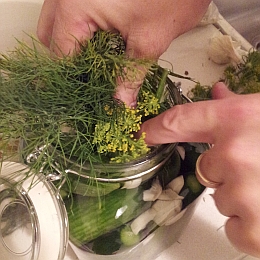
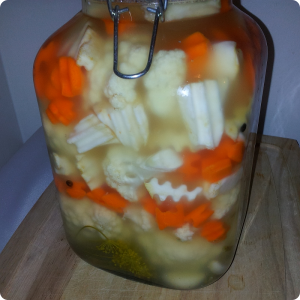 Sour Pickles; It is important to understand that brine pickles, are probiotics and vinegar pickled vegetables are not. And also make sure the sour pickles are not pasteurized, because all the microorganisms are killed through pasteurization. That means to buy locally. Sour pickles include cucumbers, cabbage, (also called sauerkraut, or kim chi), and any other vegetables that you would eat raw. I ferment myself most of my foods, see my
Sour Pickles; It is important to understand that brine pickles, are probiotics and vinegar pickled vegetables are not. And also make sure the sour pickles are not pasteurized, because all the microorganisms are killed through pasteurization. That means to buy locally. Sour pickles include cucumbers, cabbage, (also called sauerkraut, or kim chi), and any other vegetables that you would eat raw. I ferment myself most of my foods, see my 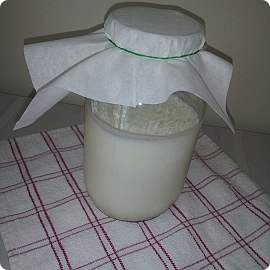 Yogurt,
Yogurt, 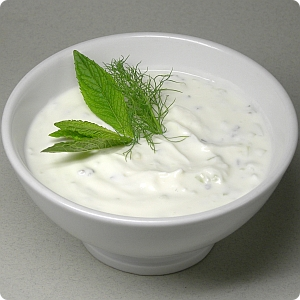
prebiotics as fermented foods
i thought fermented foods were PREbiotics. Like sauerkraut.
PRObiotic
Hi there – Sauerkraut is a PRObiotic 🙂
Fermented Foods
No fermented foods are Probiotics. Fiber, non digestible foods are Prebiotics, they feed the probiotics.
Hey there, I think your website might be having browser compatibility issues.
When I look at your blog site in Safari,
it looks fine but when opening in Internet
Explorer, it has some overlapping. I just wanted to give you a quick heads up!
Other then that, excellent blog!